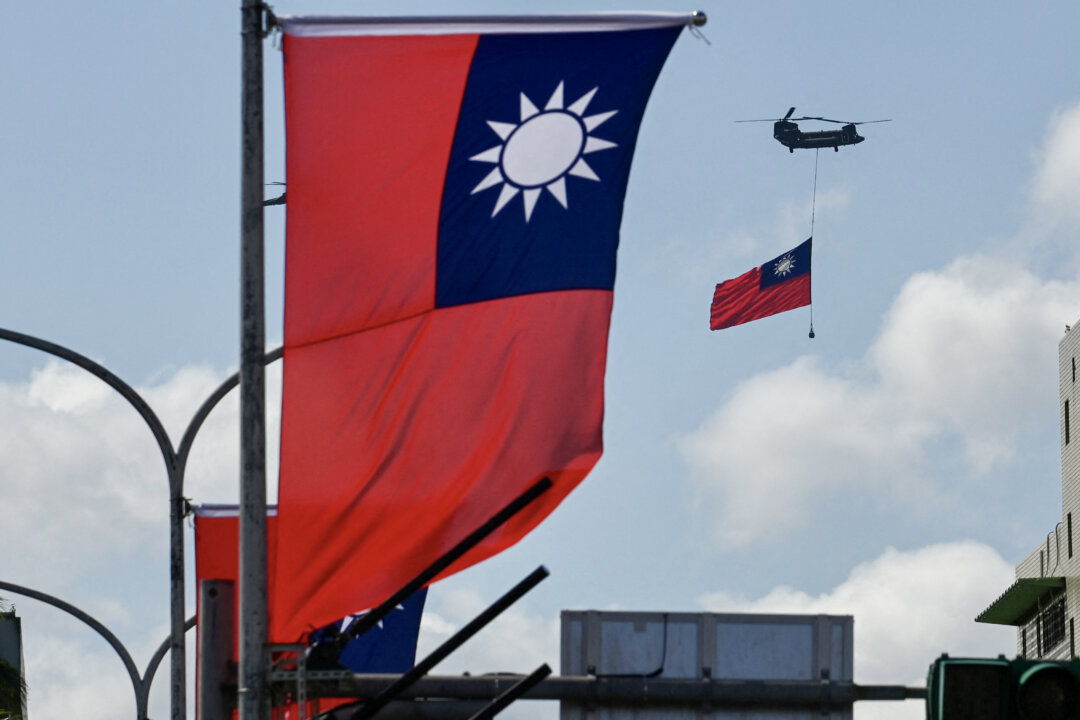The government’s supervisory arm said the Armed Forces are facing ‘unprecedented challenges’ in tackling CCP espionage.
Eight military and former military personnel were jailed in Taiwan on Thursday for providing classified intelligence or propaganda material to the Chinese regime.
Those convicted were handed prison sentences of between 18 months and 13 years, the Ministry of Justice (MoJ) Investigation Bureau said.
It comes amid increased tensions between Taiwan and mainland China, whose ruling Chinese Communist Party (CCP) claims the self-ruled island is a Chinese province, and as CCP spies are increasingly exposed in the West.
In a statement published on Thursday, the Ministry of National Defense said it respects the High Court’s judgement and will strengthen security training in response to “pervasive” CCP espionage.
The eight men jailed on Thursday are among 10 serving or former military personnel who were prosecuted in November 2023 following an investigation.
They were sentenced to a total of 58 years and 6 months after being convicted of corruption offenses and other offenses under the National Security Act, the State Secrets Protection Act, and the Army, Navy, and Air Force Criminal Code, the MoJ Investigation Bureau said in a statement.
The bureau said its branch in Taoyuan City found out in 2022 that Chen X-hsin had been recruited by CCP officials, before paying former military personnel Hsiao Hsiang-yun and Hsieh Ping-cheng to help find and run informants, who collected military intelligence for the CCP.
It’s a convention in Taiwan and in mainland China to redact part of a defendant’s name in press statements, although their full names appear in court documents.
Hsiao and Hsieh were sentenced to 13 years and eight years, respectively.
Chen was one of the two defendants who were not jailed on Thursday. Taiwan’s public news agency, the Central News Agency (CNA), cited the judgment as saying the retired military officer is still at large, possibly in mainland China, while another defendant, who was accused of filming propaganda footage for the CCP, was found not guilty.
The judgement is not currently available on the High Court’s website. The Epoch Times has not been able to independently verify the document.
Hsieh Meng-shu was sentenced to nine years in prison.
The judgement says Hsieh, a lieutenant colonel, had been conspiring to defect to the CCP with a CH-47 Chinook helicopter after being persuaded by Hsieh Ping-cheng, CNA said.
Four others, Ho Hsin-ju, Kang Yi-pin, Hung X-yang, and Lu X-fang were sentenced to 7 years and 4 months, 7 years and 2 months, 7 years, and 5.5 years, respectively, for providing intelligence to the CCP.
Lu also filmed a propaganda video for the CCP, stating in the video he was “willing to surrender to the People’s Liberation Army,” the prosecutors said.
Another man, Wu X-peng, was exonerated for the same crime.
Meanwhile, Liu X-chi received a sentence of 1.5 years for accessing classified information.
The MoJ Investigation Bureau said the CCP used cryptocurrency to pay for intelligence.Also on Thursday, the Committee on Foreign and National Defense Affairs of the Control Yuan—which audits the government and has the powers of impeachment—said there are “systemic deficiencies” in the Taiwanese military’s counterintelligence mechanism.
In a report published on Thursday, two committee members said cases of CCP espionage involving the military have significantly increased in the past 12 years, with 113 suspects involved in 40 cases between 2011 and 2023, including cases that involved the leaking of “top secret” defense documents.
It also said the military’s security unit detected 1,706 cases between Jan. 1, 2022, and June 15, 2024, where CCP agents tried to gather intelligence online.
According to the report, the CCP has expanded its target from senior officials to soldiers of any ranking, and besides intelligence gathering, targets can be paid a significant amount by signing a pledge of allegiance, promising to not fight if a war breaks out.
The CCP also set up debt traps specifically for Taiwanese military personnel, using social media and gaming platforms, and had them provide intelligence as repayment, the report said.
The use of cryptocurrencies has increased the difficulty for investigators to gather evidence, the report said, adding that the Armed Forces are facing “unprecedented challenges.”
The committee members said despite increased CCP activities, resources for Taiwan’s military security have decreased in recent years, with the budget at an “unimaginably” low level. They urged the executive branch and national security agencies to tackle any deficiencies.

